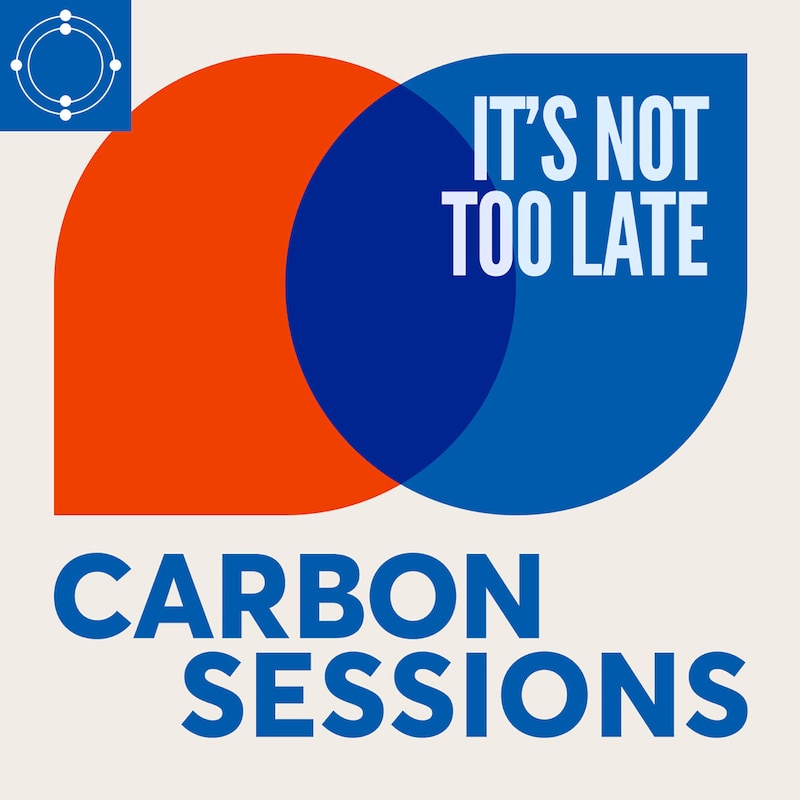
Shownotes
Episode Summary: This episode is an excerpt from a past episode on Myths about climate change
In this episode, Inma talks about how one of the myths is that climate change is nothing new because the climate is always changing.
The real myth is that it is not a problem but how many record-breaking years of rising temperature will it take to change this view?
For more information on the project, and to order your copy of the Carbon Almanac, visit thecarbonalmanac.org
Listen to the full episode: Myth 1 and 2 about Climate Change
For more information on the project and to order your copy of the Carbon Almanac, visit thecarbonalmanac.org
Want to join in the conversation?
Visit thecarbonalmanac.org/podcasts and send us a voice message on this episode or any other climate-related ideas and perspectives.
Don’t Take Our Word For It, Look It Up!
You can find out more on pages 32 and 33 of the Carbon Almanac and on the website you can tap the footnotes link and type in 342.
-----
Featuring Carbon Almanac Contributors Jenn Swanson and Inma Lopez
From Langley in British Columbia, Canada, Jenn is a Minister, Coach, Writer and Community Connector, helping people help themselves.
Imma is from Cádiz in the South of Spain, living in Aberdeen, Scotland. Imma is a sommelier, a poet, a podcaster, a mother, a slow food advocate, and an animist activist.
-----
The CarbonSessions Podcast is produced and edited by Leekei Tang, Steve Heatherington and Rob Slater.
Transcripts
Today?
INMA:What do you think, Jen, can we talk about the first myth about climate change?
JENN:The first myth?
JENN:How many myths are there?
INMA:Well, at least as far as I know in the Caldwell Almanack
INMA:they are talking about 10 myths.
JENN:Wow.
JENN:That's a lot of myths.
JENN:Okay.
JENN:What's the first myth,
INMA:the first myth, which is interesting.
INMA:Climate change is nothing new.
INMA:The climate is always changing.
JENN:That's true.
INMA:It's true.
INMA:I said, why is it, why is that in MIS what do you think?
JENN:Uh, that's true, but my understanding is that it's changing
JENN:a lot faster than it used to.
INMA:That's where that meat comes from.
INMA:Because for some people I don't see that is happening much often, nowadays.
INMA:Five years ago.
INMA:I heard many people saying, oh no, no, no.
INMA:That is a myth.
INMA:That is a problem.
INMA:Climate has OMB changing is not a problem.
INMA:That's the meat.
INMA:The meat is that is not a problem.
JENN:Wow.
JENN:I read that 17 of the 18 warmest years on record have taken place since 2001.
INMA:Yeah.
INMA:So that's, that's really fast.
INMA:And, um, For, for planet to take in all those changes and be able to
INMA:continue that is much faster than organically, both have happened.
INMA:So it's us,
JENN:it's us.
INMA:It's us.
JENN:It's the human species and all the things that we're doing.
JENN:Oh my goodness.
JENN:So, so that's a myth.
JENN:And how do we change that myth in, in the minds of people?
INMA:Well, the most of it is coming from fuel emissions and gas and carbon
INMA:coal oil, gas, all that is a big, big, big, big part of those fast changes.
INMA:So what can we do?
INMA:I think there's probably multiple ways of action personally.
INMA:I saw my car in 2013, but I think we come join.
INMA:In that asking for governments and companies to reduce emissions,
INMA:to reduce their use of fuel to the government, to not dump, let
INMA:companies to do more explanations and oil or gas, things like that.
INMA:Joint.
INMA:And I book a C two together at like asking for responsibilities.
JENN:I live in on the west coast of Canada.
JENN:And one of the things we've got here are incentives to switch from
JENN:gas powered vehicles to electric.
JENN:And so the government gives us grants if we do that.
JENN:And so there are provincial and federal grants that can.
JENN:Accessed, if you give up your guest's car and a and purchase even a used
JENN:electric vehicle, um, the problem right now is that everyone is doing this one
JENN:is doing it and they're hard to find.
INMA:Yeah, of course.
INMA:Of course, of course I'm lost.
INMA:So for example, I heard the other day that in the Paris agreement, fuel and
INMA:oil, and no, that was not even named.
INMA:So they are fighting for governments and countries to sign a treaty about stopping
INMA:emissions and it's topping perspective.
INMA:For future for future.
INMA:I think that could be interesting for us to endorse, to tell our, our countries
INMA:on our all governments to sign petitions, to tell them, to sign this treaty.
JENN:I wonder if local governments can do things too.
JENN:Like I wonder if you can start with your city or your village or your town.
JENN:And speak to them about the vehicles that are driven by the city and start
JENN:there, or even the post, uh, the postal system, but the system by more bakers
JENN:that are oil powered, for example, right.
JENN:Right.
JENN:That's that's a good thing.
JENN:Good place to start.
JENN:And, and for ourselves, maybe we can do some small things like walk
JENN:somewhere instead of getting in the car.
INMA:He's an amazing asset size.
INMA:And this time of the year is perfect for in the Northern hemisphere.
INMA:At least it's perfect for go around war.
JENN:Yes.
JENN:It's, it's not too nice out right now where I am.
JENN:It's raining, but that's okay.
JENN:You can get an umbrella on some boots and
JENN:we won't melt.
JENN:No.
INMA:Yeah.
INMA:What more.
INMA:And, um, as much as you can use public transport and electric car, if it
INMA:can be, can be possible to, to buy and then join strength with others
INMA:to sign petitions for our government.
JENN:So climate change is nothing new, but maybe we need
JENN:to look at it in the new way.
INMA:Yeah.
INMA:And be aware.
INMA:Yeah.
JENN:Good.
JENN:Well, thanks for this conversation, Emma.
INMA:Thank you, Jen.



